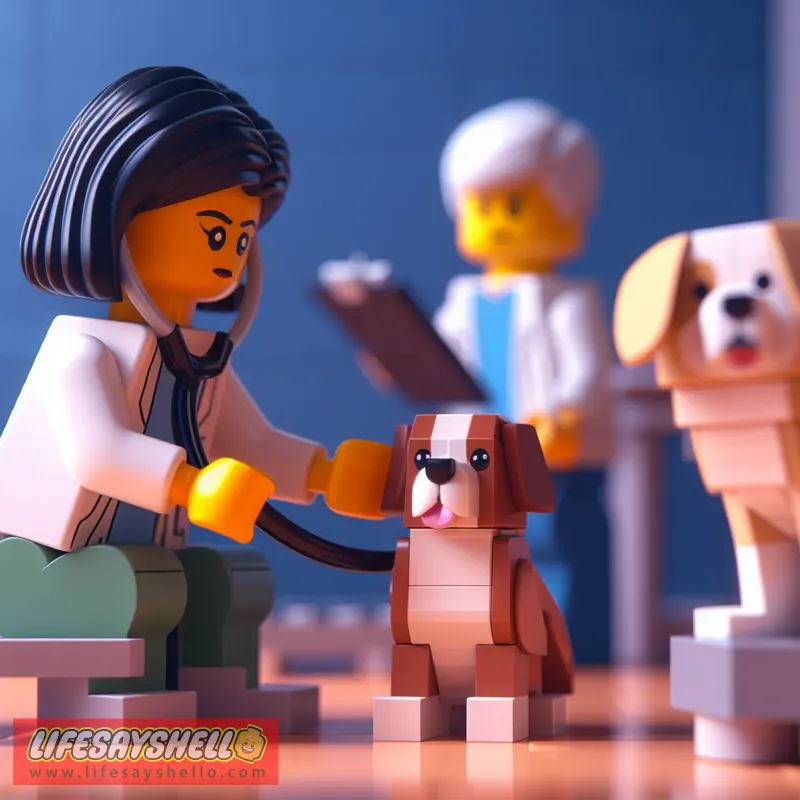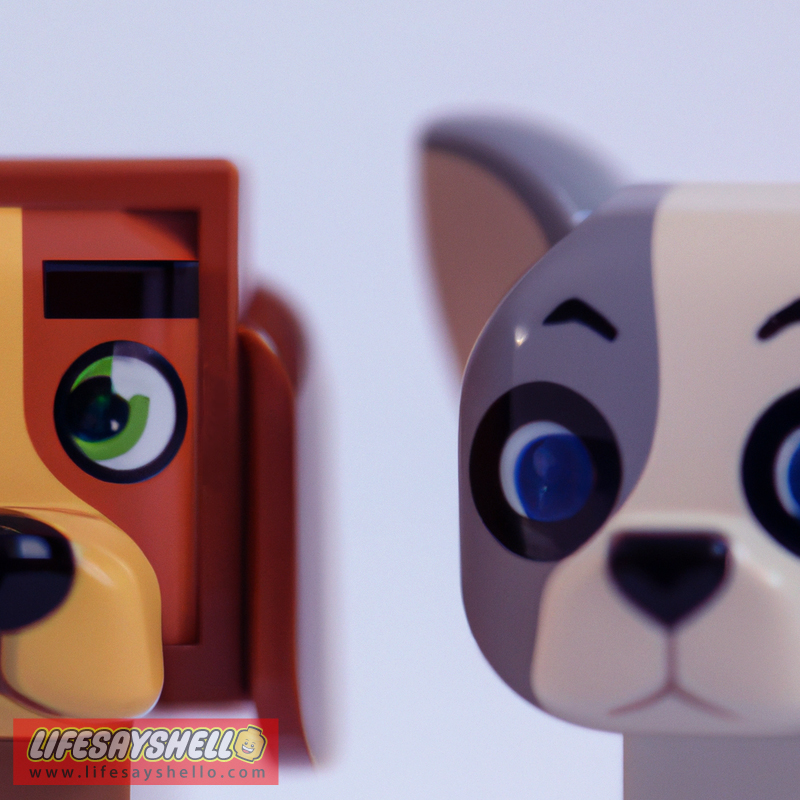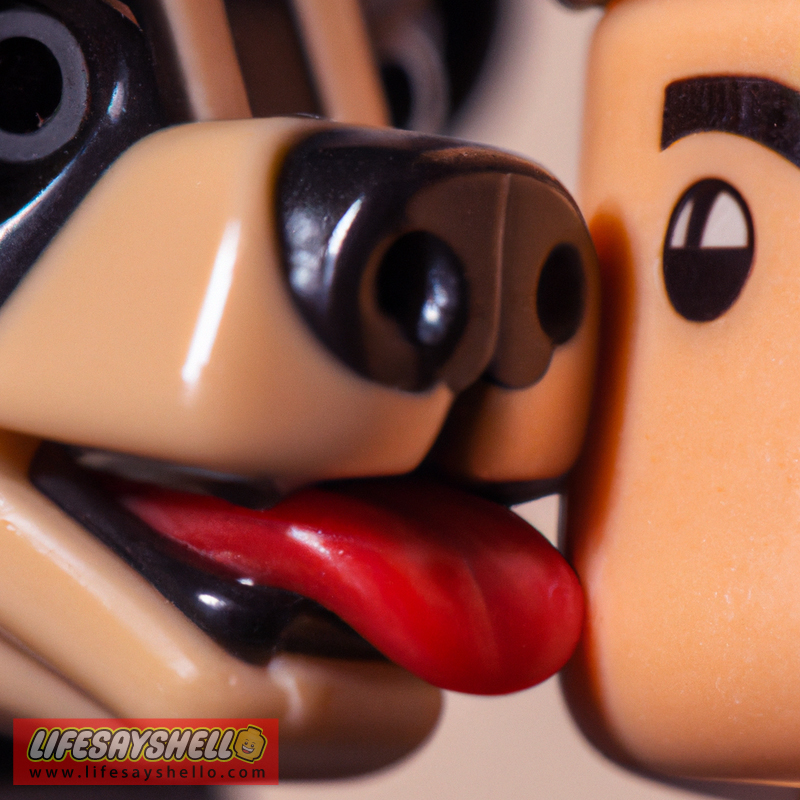Why Is My Dog Panting So Much? When You Should Worry

Panting is a common behavior in dogs that helps them regulate their body temperature. You've likely seen your pup happily panting after playtime in the yard on a hot day. But excessive or abnormal panting when your dog is not active or hot can be a red flag for underlying issues. Read on to learn what's normal, what's not, and how to help an overheated dog cool down safely.
We've all seen dogs panting happily after running and playing outside on a hot summer day. Panting is perfectly normal dog behavior - it's how they circulate air and release heat since they don't have sweat glands like people do.
But if you notice your four-legged friend panting heavily even when they're not active or hot, it could be a sign of a medical problem requiring veterinary attention. Excessive panting can indicate heatstroke, pain, respiratory distress, heart issues, poisoning, parasites, anxiety, and more.
When Is Dog Panting Considered Excessive?
To determine if your dog's panting is excessive, pay attention to when and how long they are panting, as well as the intensity. Panting that occurs frequently throughout the day or persists for longer than 10-20 minutes when your dog is calm likely falls outside the range of normal panting behavior.
Panting that is rapid or involves deep, heaving breaths is also a red flag. Dogs normally pant with shallow, rapid breaths. If your dog is panting intensely for no obvious reason, it's time to call the vet.
Common Causes of Excessive Panting in Dogs
There are many possible medical explanations for sudden excessive panting in dogs. Here are some of the most common causes:
Heatstroke
Heatstroke is a life-threatening condition that occurs when a dog's body temperature rises above the normal range of 100-102.5°F. As heatstroke progresses, a dog's ability to regulate their temperature becomes overwhelmed.
Left untreated, heatstroke can lead to organ failure, brain damage, and death. So if you suspect your dog is suffering from heatstroke, take immediate action to cool them down and contact your vet right away.
Dogs are especially vulnerable to heatstroke when exercising on hot days or left in cars. But heatstroke can also happen when a dog is confined in a hot room in your home with poor ventilation.
Some signs of heatstroke include:
- Panting excessively
- Rapid heart rate
- Reddened gums
- Thick, sticky saliva
- Dizziness, weakness, or collapse
- Vomiting or diarrhea
If your dog shows these signs, get them out of the heat, wet their coat with cool water, offer sips of water, and take them to the vet immediately. Acting quickly can save your dog's life.
Pain
Dogs can't tell us when they are hurting - panting and other signs of distress are often the only outward symptoms of pain. If your dog is panting heavily and you haven't identified another obvious cause, pain could be the culprit.
Some possible sources of pain that can cause panting include:
- Arthritis, joint, or muscle injuries
- Dental issues like gum infection or fractured teeth
- Internal issues like bladder stones, intestinal blockage, or pancreatitis
- Recent surgery or trauma
Panting from pain often comes on suddenly and may be accompanied by other signs like whining, aggression, appetite changes, or reluctance to move. If pain seems like a likely cause, get your dog checked out right away to determine the source and proper treatment.
Respiratory Distress
Respiratory diseases like kennel cough, asthma, pneumonia, and fluid in the lungs can cause breathing difficulty and heavy panting. Dogs with these conditions often show other symptoms like coughing, wheezing, lethargy, or blue-tinged gums.
Panting from respiratory troubles tends to be persistent and worsen over time without treatment. Left untreated, some respiratory issues can become life-threatening. So if your dog shows any signs of respiratory distress along with excessive panting, make an appointment with your vet.
Anxiety
Like humans, dogs can pant excessively when frightened or anxious. New environments, loud noises, travel, or separation from owners can all trigger anxiety. If you've recently moved, traveled, boarded your dog, or changed their daily routine, panting may signal stress.
Look for other body language cues like trembling, hiding, whining, lip licking, or a lowered tail. If anxiety seems to be the cause, try calming your dog with a Thundershirt, pheromone diffuser, or calming treats. But seek help from your vet or trainer if their anxious panting persists.
Poisoning
Ingesting toxic substances like antifreeze, human medications, or tainted foods can all result in poisoning that leads to abnormal panting. Other signs of poisoning include vomiting, diarrhea, seizures, and collapse.
If you have any reason to suspect your dog may have ingested something toxic, call your vet or the ASPCA Poison Control Center at (888) 426-4435 immediately. Rapid treatment is critical for the best chance of recovery.
Allergic Reaction
Dogs can experience life-threatening allergic reactions to things like bee stings, vaccines, certain foods, and medications. Anaphylactic shock can cause facial swelling, hives, vomiting, collapse, and heavy panting.
If your dog shows these acute allergic reaction symptoms, it is a veterinary emergency requiring immediate medical attention. Delaying treatment with epinephrine and steroids dramatically reduces the chances of survival.
Heart Issues
Some types of heart disease and heart defects can prevent a dog's cardiovascular system from meeting the increased oxygen demands of panting. So dogs with heart problems may pant heavily even with mild exercise or heat.
Panting from heart issues tends to worsen over time. It may occur alongside other symptoms like weakness, coughing, or swollen abdomen. Diagnostic tests like x-rays, EKG, and ultrasound can identify the underlying problem.
Parasites
Parasites like roundworms, hookworms, and heartworms can infest a dog's intestinal tract, lungs, or heart, leading to panting and breathing trouble. Young puppies are especially vulnerable to heavy roundworm infections that can cause pneumonia and respiratory distress.
Regular deworming and heartworm preventative medication help protect your dog from parasitic infestations. If you suspect parasites may be causing your dog's excessive panting and lethargy, a fecal exam and blood test can diagnose a problem.
Pregnancy or Labor
As gestation progresses, pregnant dogs often pant more to increase oxygen flow for their growing puppies. Panting is also normal during the birthing process. But excessive panting in a pregnant dog can potentially indicate a problem like eclampsia or uterine infection.
Contact your vet if your pregnant dog pants heavily for longer than 15-20 minutes. They can assess fetal health, run tests, and prescribe medication as needed to protect mom and pups.
What to Do If Your Dog Is Overheated and Panting
If your dog is overheated and panting heavily, it's important to act quickly to cool them down and prevent heat exhaustion. Here are some first aid steps you can take at home to lower their body temperature:
Move to a cooler area - Get them into an air-conditioned room or shady spot immediately.
Offer cool drinking water - Allow them to drink small amounts frequently to rehydrate.
Wet their coat - Use cool water, not cold, to wet their neck, armpits, and groin area where blood vessels are close to the skin.
Drape cool wet towels over their back to help transfer heat away from their body.
Allow swimming - If you have access to a kiddie pool, lake, or stream, let your dog take a dip to cool down.
Use a fan - Direct air flow over your dog's body to accelerate evaporative cooling.
Rub alcohol on paws - Applying rubbing alcohol to paw pads can help cool down body temperature.
Avoid extreme cold - Don't use ice packs or freeze injured pets. Extreme cold restricts blood vessels and prevents heat loss.
Monitor your dog closely for improvement. If their heavy panting persists longer than 10-15 minutes, or you notice symptoms like vomiting or diarrhea, get them to the vet immediately.
Left untreated, heat exhaustion can lead to organ damage, seizures, coma, and death. So prompt first aid and veterinary treatment are crucial.
Signs of Heat Exhaustion Requiring Emergency Treatment
Heat exhaustion, also known as hyperthermia, occurs when a dog's body temperature climbs above the normal range of 100-102.5°F and their cooling mechanisms become overwhelmed.
If heat exhaustion progresses to heat stroke, it becomes a life-threatening emergency requiring immediate veterinary treatment to prevent lasting organ damage or death.
Take your dog to the vet or emergency clinic right away if they show any of these signs of heatstroke:
- Heavy panting that persists after attempts to cool them down
- Bright red, purple, or pale gums
- Collapsing or inability to stand
- Seizures
- Vomiting or bloody diarrhea
- Thick, sticky saliva
- Loss of consciousness
The vet will check body temperature, blood pressure, blood cell counts, electrolytes, and oxygen levels. They may give IV fluids, oxygen therapy, medication, and take steps to rapidly cool your dog down.
In severe cases, dogs may require hospitalization in intensive care for organ support, like dialysis. Sadly, even with aggressive treatment, some dogs do not survive heat stroke.
That's why it's so important to take steps to prevent heat exhaustion on hot days. Never leave your dog in a parked car, even with the windows cracked. Make sure they have constant access to shade and fresh water on sunny days. And limit exercise to early morning or evening on extremely hot days.
With proper prevention and immediate treatment when needed, we can help keep our four-legged friends safe in the heat.
When to Take Your Dog to the Vet for Panting
While panting is normal dog behavior, excessive or abnormal panting can be a sign of underlying health problems requiring veterinary attention. Contact your vet if:
- Your dog pants heavily throughout the day even when calm and cool.
- Panting seems excessive compared to normal breathing.
- Panting persists more than 10-15 minutes after exercise or heat exposure.
- Panting is rapid and involves deep, heaving breaths.
- Panting worsens or occurs alongside other symptoms like coughing, weakness, or collapse.
Your vet will do a physical exam and use diagnostic tests as needed to pinpoint the cause of your dog’s excessive panting. Possible tests include:
- Blood work to check for signs of infection, anemia, electrolyte imbalance, kidney issues, and more.
- Chest x-rays to look for an enlarged heart or fluid in the lungs.
- Abdominal ultrasound to check for tumors, bladder stones, or enlarged organs.
- EKG to evaluate heart rhythm and function.
- Endoscopy to examine the airways and digestive tract.
In some cases, the underlying cause may not be immediately obvious based on exam and test results. Your vet may prescribe medication to help control panting while monitoring response over several days to determine next steps.
Getting an accurate diagnosis is important for proper treatment. Some causes of excessive panting like heart disease, cancer, and serious infections need specific medications or ongoing care to manage the condition.
While most cases of abnormal panting have an identifiable medical cause, sometimes excessive panting results from behavioral issues like separation anxiety or noise phobia. If medical causes are ruled out, your vet may refer you to a veterinary behaviorist for help.
No matter what the underlying reason, excessive panting in dogs should never be ignored. Left untreated, many conditions will worsen over time. By being attentive to changes in your dog’s breathing and getting prompt veterinary attention, you can help keep your furry friend happy and healthy.
Conclusion: Look for the Signs of Abnormal Panting in Dogs
Panting is a normal cooling behavior for dogs that enables them to regulate their temperature. However, excessive or abnormal panting can signal potentially serious medical issues that require veterinary attention.
Watch for panting that occurs persistently when your dog is calm and cool, rapid heaving breaths, and panting that continues more than 10-15 minutes after exercise or heat exposure. Also be alert for panting along with other symptoms like coughing, weakness, or collapse.
If your dog is panting abnormally, take steps to cool them down and call your vet right away if heavy panting persists. Left untreated, conditions like heat stroke, heart disease, pain, and respiratory distress can become life-threatening.
With close observation of your dog’s breathing patterns and prompt veterinary care when needed, you can keep your precious pup happy and healthy even on hot summer days. Listen to what your dog’s panting is trying to tell you!




Comments